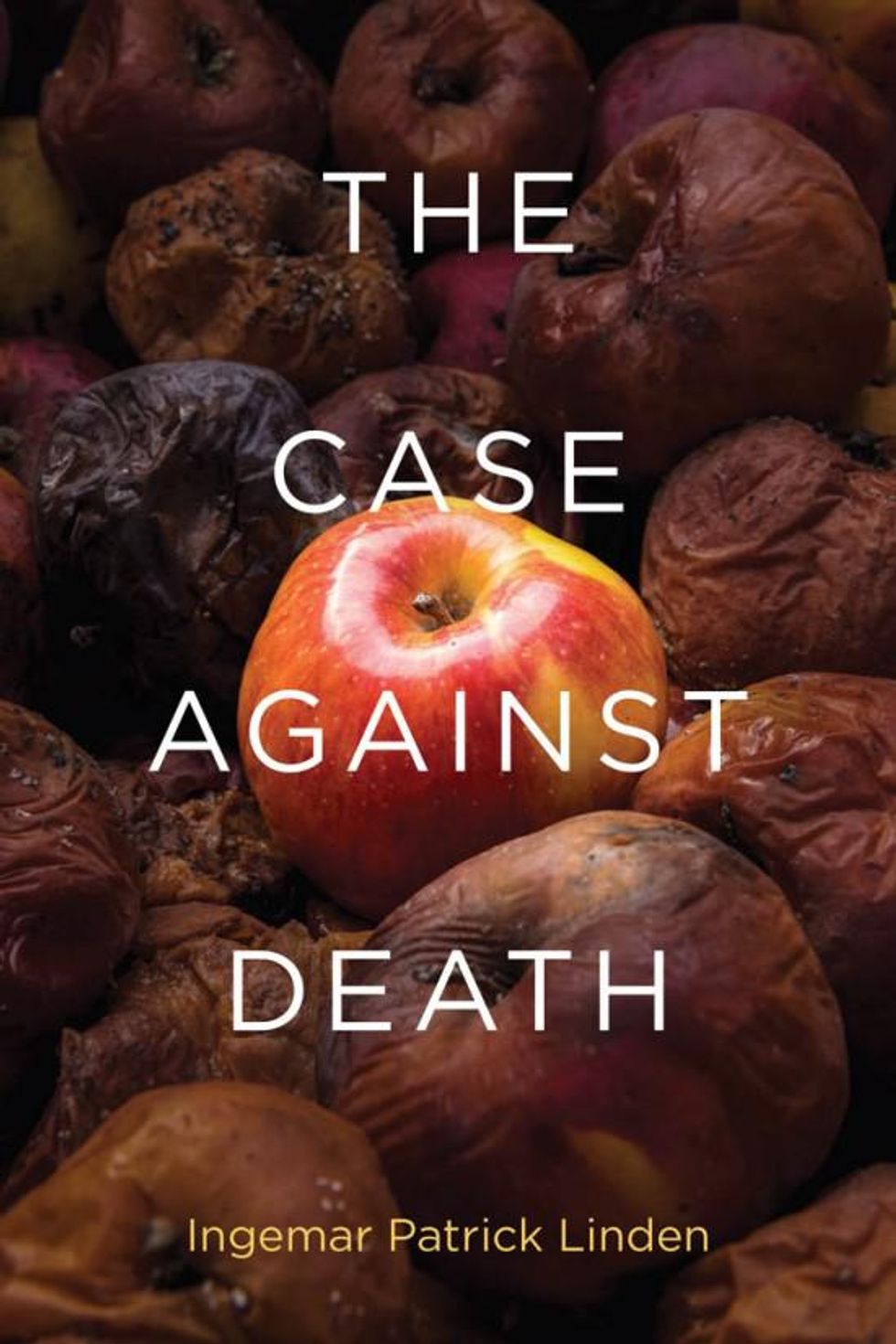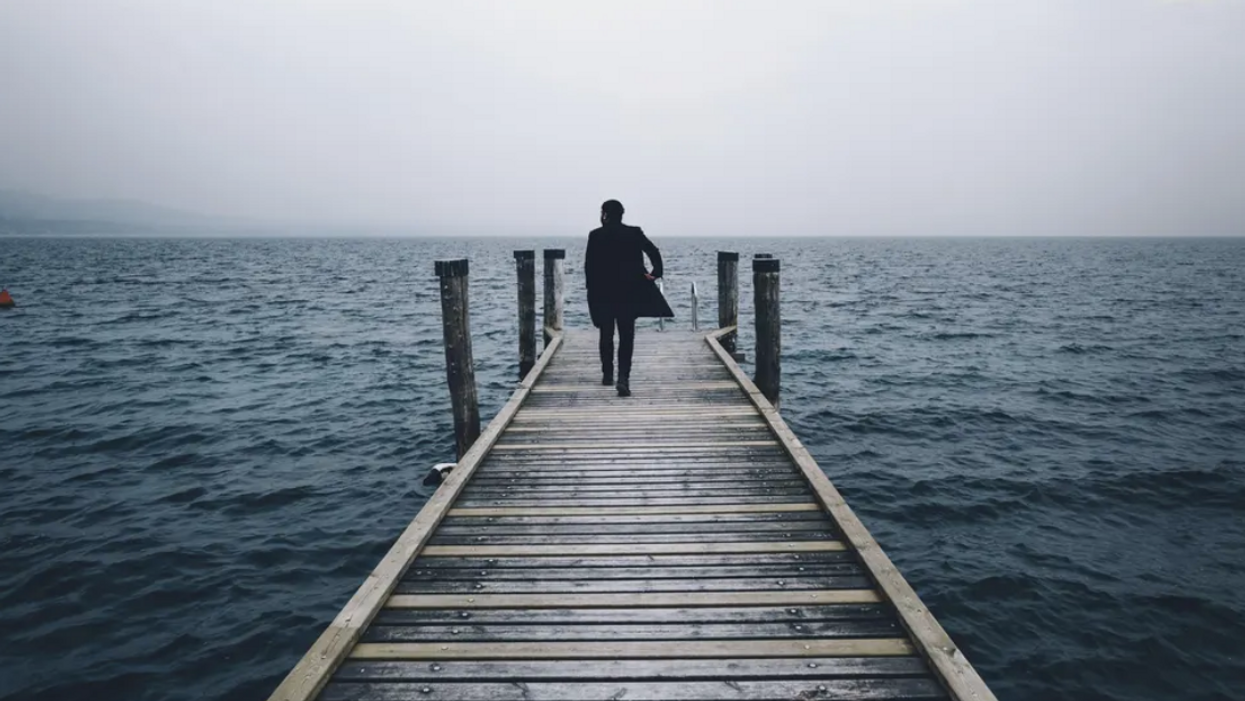Society Needs Regulations to Prevent Research Abuses

A tension exists between scientists/doctors and government regulators.
[Editor's Note: Our Big Moral Question this month is, "Do government regulations help or hurt the goal of responsible and timely scientific innovation?"]
Government regulations help more than hurt the goal of responsible and timely scientific innovation. Opponents might argue that without regulations, researchers would be free to do whatever they want. But without ethics and regulations, scientists have performed horrific experiments. In Nazi concentration camps, for instance, doctors forced prisoners to stay in the snow to see how long it took for these inmates to freeze to death. These researchers also removed prisoner's limbs in order to try to develop innovations to reconnect these body parts, but all the experiments failed.
Researchers in not only industry, but also academia have violated research participants' rights.
Due to these atrocities, after the war, the Nuremberg Tribunal established the first ethical guidelines for research, mandating that all study participants provide informed consent. Yet many researchers, including those in leading U.S. academic institutions and government agencies, failed to follow these dictates. The U.S. government, for instance, secretly infected Guatemalan men with syphilis in order to study the disease and experimented on soldiers, exposing them without consent to biological and chemical warfare agents. In the 1960s, researchers at New York's Willowbrook State School purposefully fed intellectually disabled children infected stool extracts with hepatitis to study the disease. In 1966, in the New England Journal of Medicine, Henry Beecher, a Harvard anesthesiologist, described 22 cases of unethical research published in the nation's leading medical journals, but were mostly conducted without informed consent, and at times harmed participants without offering them any benefit.
Despite heightened awareness and enhanced guidelines, abuses continued. Until a 1974 journalistic exposé, the U.S. government continued to fund the now-notorious Tuskegee syphilis study of infected poor African-American men in rural Alabama, refusing to offer these men penicillin when it became available as effective treatment for the disease.
In response, in 1974 Congress passed the National Research Act, establishing research ethics committees or Institutional Review Boards (IRBs), to guide scientists, allowing them to innovate while protecting study participants' rights. Routinely, IRBs now detect and prevent unethical studies from starting.
Still, even with these regulations, researchers have at times conducted unethical investigations. In 1999 at the Los Angeles Veterans Affairs Hospital, for example, a patient twice refused to participate in a study that would prolong his surgery. The researcher nonetheless proceeded to experiment on him anyway, using an electrical probe in the patient's heart to collect data.
Part of the problem and consequent need for regulations is that researchers have conflicts of interest and often do not recognize ethical challenges their research may pose.
Pharmaceutical company scandals, involving Avandia, and Neurontin and other drugs, raise added concerns. In marketing Vioxx, OxyContin, and tobacco, corporations have hidden findings that might undercut sales.
Regulations become increasingly critical as drug companies and the NIH conduct increasing amounts of research in the developing world. In 1996, Pfizer conducted a study of bacterial meningitis in Nigeria in which 11 children died. The families thus sued. Pfizer produced a Nigerian IRB approval letter, but the letter turned out to have been forged. No Nigerian IRB had ever approved the study. Fourteen years later, Wikileaks revealed that Pfizer had hired detectives to find evidence of corruption against the Nigerian Attorney General, to compel him to drop the lawsuit.
Researchers in not only industry, but also academia have violated research participants' rights. Arizona State University scientists wanted to investigate the genes of a Native American group, the Havasupai, who were concerned about their high rates of diabetes. The investigators also wanted to study the group's rates of schizophrenia, but feared that the tribe would oppose the study, given the stigma. Hence, these researchers decided to mislead the tribe, stating that the study was only about diabetes. The university's research ethics committee knew the scientists' plan to study schizophrenia, but approved the study, including the consent form, which did not mention any psychiatric diagnoses. The Havasupai gave blood samples, but later learned that the researchers published articles about the tribe's schizophrenia and alcoholism, and genetic origins in Asia (while the Havasupai believed they originated in the Grand Canyon, where they now lived, and which they thus argued they owned). A 2010 legal settlement required that the university return the blood samples to the tribe, which then destroyed them. Had the researchers instead worked with the tribe more respectfully, they could have advanced science in many ways.
Part of the problem and consequent need for regulations is that researchers have conflicts of interest and often do not recognize ethical challenges their research may pose.
Such violations threaten to lower public trust in science, particularly among vulnerable groups that have historically been systemically mistreated, diminishing public and government support for research and for the National Institutes of Health, National Science Foundation and Centers for Disease Control, all of which conduct large numbers of studies.
Research that has failed to follow ethics has in fact impeded innovation.
In popular culture, myths of immoral science and technology--from Frankenstein to Big Brother and Dr. Strangelove--loom.
Admittedly, regulations involve inherent tradeoffs. Following certain rules can take time and effort. Certain regulations may in fact limit research that might potentially advance knowledge, but be grossly unethical. For instance, if our society's sole goal was to have scientists innovate as much as possible, we might let them stick needles into healthy people's brains to remove cells in return for cash that many vulnerable poor people might find desirable. But these studies would clearly pose major ethical problems.
Research that has failed to follow ethics has in fact impeded innovation. In 1999, the death of a young man, Jesse Gelsinger, in a gene therapy experiment in which the investigator was subsequently found to have major conflicts of interest, delayed innovations in the field of gene therapy research for years.
Without regulations, companies might market products that prove dangerous, leading to massive lawsuits that could also ultimately stifle further innovation within an industry.
The key question is not whether regulations help or hurt science alone, but whether they help or hurt science that is both "responsible and innovative."
We don't want "over-regulation." Rather, the right amount of regulations is needed – neither too much nor too little. Hence, policy makers in this area have developed regulations in fair and transparent ways and have also been working to reduce the burden on researchers – for instance, by allowing single IRBs to review multi-site studies, rather than having multiple IRBs do so, which can create obstacles.
In sum, society requires a proper balance of regulations to ensure ethical research, avoid abuses, and ultimately aid us all by promoting responsible innovation.
[Ed. Note: Check out the opposite viewpoint here, and follow LeapsMag on social media to share your perspective.]
New study: Hotter nights, climate change, cause sleep loss with some affected more than others
According to a new study, sleep is impaired with temperatures over 50 degrees, and temps higher than 77 degrees reduce the chances of getting seven hours.
Data from the National Sleep Foundation finds that the optimal bedroom temperature for sleep is around 65 degrees Fahrenheit. But we may be getting fewer hours of "good sleepin’ weather" as the climate warms, according to a recent paper from researchers at the University of Copenhagen, Denmark.
Published in One Earth, the study finds that heat related to climate change could provide a “pathway” to sleep deprivation. The authors say the effect is “substantially larger” for those in lower-income countries. Hours of sleep decline when nighttime temperature exceeds 50 degrees, and temps higher than 77 reduce the chances of sleeping for seven hours by 3.5 percent. Even small losses associated with rising temperatures contribute significantly to people not getting enough sleep.
We’re affected by high temperatures at night because body temperature becomes more sensitive to the environment when slumbering. “Mechanisms that control for thermal regulation become more disordered during sleep,” explains Clete Kushida, a neurologist, professor of psychiatry at Stanford University and sleep medicine clinician.
The study finds that women and older adults are especially vulnerable. Worldwide, the elderly lost over twice as much sleep per degree of warming compared to younger people. This phenomenon was apparent between the ages of 60 and 70, and it increased beyond age 70. “The mechanism for balancing temperatures appears to be more affected with age,” Kushida adds.
Others disproportionately affected include those who live in regions with more greenhouse gas (GHG) emissions, which accelerate climate change, and people in hotter locales will lose more sleep per degree of warming, according to the study, with suboptimal temperatures potentially eroding 50 to 58 hours of sleep per person per year. One might think that those in warmer countries can adapt to the heat, but the researchers found no evidence for such adjustments. “We actually found those living in the warmest climate regions were impacted over twice as much as those in the coldest climate regions,” says the study's lead author, Kelton Minor, a Ph.D. candidate at the University of Copenhagen’s Center for Social Data Science.
Short sleep can reduce cognitive performance and productivity, increase absenteeism from work or school, and lead to a host of other physical and psychosocial problems. These issues include a compromised immune system, hypertension, depression, anger and suicide, say the study’s authors. According to a fact sheet by the U.S. Centers for Disease Control and Prevention, a third of U.S. adults already report sleeping fewer hours than the recommended amount, even though sufficient sleep “is not a luxury—it is something people need for good health.”
Equitable policy and planning are needed to ensure equal access to cooling technologies in a warming world.
Beyond global health, a sleep-deprived world will impact the economy as the climate warms. “Less productivity at work, associated with sleep loss or deprivation, would result in more sick days on a global scale, not just in individual countries,” Kushida says.
Unlike previous research that measured sleep patterns with self-reported surveys and controlled lab experiments, the study in One Earth offers a global analysis that relies on sleep-tracking wristbands that link more than seven million sleep records of 47,628 adults across 68 countries to local and daily meteorological data, offering new insight into the environmental impact on human sleep. Controlling for individual, seasonal and time-varying confounds, researchers found the main way that higher temperatures shorten slumber is by delaying sleep onset.
Heat effects on sleep were seen in industrialized countries including those with access to air conditioning, notes the study. Air conditioning may buffer high indoor temperatures, but they also increase GHG emissions and ambient heat displacement, thereby exacerbating the unequal burdens of global and local warming. Continued urbanization is expected to contribute to these problems.
Previous sleep studies have found an inverse U-shaped response to temperature in highly controlled settings, with subjects sleeping worse when room temperatures were either too cold or too warm. However, “people appear far better at adapting to colder outside temperatures than hotter conditions,” says Minor.
Although there are ways of countering the heat effect, some populations have more access to them. “Air conditioning can help with the effect of higher temperature, but not all individuals can afford air conditioners,” says Kushida. He points out that this could drive even greater inequity between higher- and lower-income countries.
Equitable policy and planning are needed to ensure equal access to cooling technologies in a warming world. “Clean and renewable energy systems and interventions will be needed to mitigate and adapt to ongoing climate warming,” Minor says. Future research should investigate “policy, planning and design innovation,” which could reduce the impact of sweltering temperatures on a good night’s sleep for the good of individuals, society and our planet, asserts the study.
Unabated and on its current trajectory, by 2099 suboptimal temperatures could shave 50 to 58 hours of sleep per person per year, predict the study authors. “Down the road, as technology develops, there might be ways of enabling people to adapt on a large scale to these higher temperatures,” says Kushida. “Right now, it’s not there.”
Why we need to get serious about ending aging
With the population of older people projected to grow dramatically, and the cost of healthcare with it, the future welfare of the country may depend on solving aging, writes philosopher Ingemar Patrick Linden.
It is widely acknowledged that even a small advance in anti-aging science could yield benefits in terms of healthy years that the traditional paradigm of targeting specific diseases is not likely to produce. A more youthful population would also be less vulnerable to epidemics. Approximately 93 percent of all COVID-19 deaths reported in the U.S. occurred among those aged 50 or older. The potential economic benefits would be tremendous. A more youthful population would consume less medical resources and be able to work longer. A recent study published in Nature estimates that a slowdown in aging that increases life expectancy by one year would save $38 trillion per year for the U.S. alone.
A societal effort to understand, slow down, arrest or even reverse aging of at least the size of our response to COVID-19 would therefore be a rational commitment. In fact, given that America’s older population is projected to grow dramatically, and the cost of healthcare with it, it is not an overstatement to say that the future welfare of the country may depend on solving aging.
This year, the kingdom of Saudi Arabia has announced that it will spend up to 1 billion dollars per year on science with the potential to slow down the aging process. We have also seen important investments from billionaires like Google co-founder Larry Page, Amazon founder Jeff Bezos, business magnate Larry Ellison, and PayPal co-founder Peter Thiel.
The U.S. government, however, is lagging: The National Institutes of Health spent less than one percent of its $43 billion budget for the fiscal year of 2021 on the National Institute on Aging’s Division of Aging Biology. When you visit the division’s webpage you find that their mission statement carefully omits any mention of the possibility of slowing down the aging process.
There is a lack of political will and leadership on the issue, and the idea that we should seek to do something about aging is generally met with a great deal of suspicion and trepidation. In a large representative study conducted by the Pew Research Center in 2013, only 38% of the respondents said that they would want a treatment that could slow the aging process and allow them to live at least 120 years. Apparently, most people prefer, or at least do not mind, to age and die within a natural lifespan. This result has been confirmed by smaller studies and it is, I think, surprising. Are we not supposed to live in a youth-culture? Are people not supposed to want to stay young and alive forever? Is self-preservation not the strong drive we have always assumed it to be?
We are inundated and saturated with an ideology of death-acceptance.
In my book, The Case against Death, I suggest that we have been culturally conditioned to think that it is virtuous to accept aging and death. We are taught to believe that although aging and death seem gruesome, they are what is best for us, all things considered. This is what we are supposed to think, and the majority accept it. I call this the Wise View because death acceptance has been the dominant view of philosophers since the beginning. Socrates compared our earthly life to an illness and a prison and described death as a healer and a liberator. The Buddha taught that life is suffering and that the way to escape suffering is to end the cycle of birth, death and rebirth. Stoic philosophers from Zeno to Marcus Aurelius believed that everything that happens in accordance with nature is good, and that therefore we should not only accept death but welcome it as an aspect of a perfect totality.
Epicureans agreed with these rival schools and famously argued that death cannot harm us because where we are, death is not, and where death is we are not. We cannot be harmed if we are not, so death is harmless. The simple view that death actually can harm us greatly is one of the least philosophical views one can hold.

In The Case Against Death, philosopher Ingemar Patrick Linden argues that we frown on using science to prolong healthy life only because we're culturally conditioned to think that way.
Many of the stories we tell promote the Wise View. One of the earliest known pieces of literature, the Epic of Gilgamesh, follows Gilgamesh on a quest for eternal life ending with the wisdom that death is the destiny of man. Today we learn about the tedium of immortality from the children’s book Tuck Everlasting by Natalie Babbitt, and we are warned about the vice of wanting to resist death in other books and films such as J.K Rowling’s Harry Potter, where Voldemort must kill Harry as a step towards his own immortality; C.S. Lewis’ The Chronicles of Narnia where the White Witch has gained immortal youth and madness in equal measures; J.R.R. Tolkien’s Lord of the Rings trilogy where the ring extends the wearer’s life but can also destroy them, as exemplified by the creep Gollum; and Doctor Strange where life extension is the one magical power that is taboo. In Star Wars, Yoda, a stereotype of the sage, teaches us the wisdom handed down by philosophers and prophets: “Death is a natural part of life. Rejoice for those around you who transform into the Force. Mourn them do not. Miss them do not.”
We are inundated and saturated with an ideology of death-acceptance. Can the dear reader name one single story where the hero is pursuing anti-aging, longevity or immortality and the villain tries to stop her?
The Wise View resonates with us partly because we think that there is nothing we can do about aging and death, so we do not want to wish for what we cannot have. Youth and immortality are sour grapes to us. Believing that death is, all things considered, not such a bad thing, protects us from experiencing our aging and approaching death as a gruesome tragedy. This need to escape the thought that we are heading towards a personal catastrophe explains why many are so quick to accept arguments against radical life extension, despite their often glaring weaknesses.
One of the most common objections to radical life extension is that aging and death are natural. The problem with this argument is that many things that are natural are very bad, such as cancer, and other things that are not natural are very good, such as a cure for cancer. Why are we so sure that cancer is bad? Because we assume that it is bad to die. Indeed, nothing is more natural than wanting to live. We seem to need philosophers and story tellers to talk us out of it and, in the words of a distinguished bioethicist, “instruct and somewhat moderate our lust for life.”
Another standard objection is that we need a deadline, and that without death we could postpone every action forever. “Death brings urgency and seriousness to life,” say proponents of this view, but there are several problems with this argument. Even if our lives were endless, there would still be many things we would have to do at a certain time, and that could not be redone, for example, saving our planet from being destroyed, or becoming the first person on Venus. And if we prefer pleasant endless lives over unpleasant endless ones, we will have to exercise, eat right, keep our word, develop our talents, show up for time at work, pay our taxes by the due date, remember birthdays, and so on.
The Wise View provides us with a feel-good bromide for the anxiety created by the foreknowledge of our decay and death by telling us that these are not evils, but blessings in disguise. Once perhaps an innocuous delusion, today the view stands in the way of a necessary societal commitment to research that can prolong our healthy life.
Besides, even if we succeeded in ending aging, we would still die from other causes. Given the rate of accidental deaths we would be fortunate to live to age 2000 all things equal. So even if, contrary to what I have argued, we do need a deadline, we can still argue that the natural lifespan that we now labor under is inhuman and that it forces each human to limit her ambitions and to become only a fragment of all that she that could have been. Our tight time constraint imposes tragic choices and inflated opportunity costs. Death does not make life matter; it makes time matter.
The perhaps most awful argument against radical life extension is grounded in a pessimism that holds life in such little regard that it says that best of all is never to have born. This view was expressed by Ecclesiastes in the Hebrew Bible, by Sophocles and several other ancient Greeks, by the German philosopher Arthur Schopenhauer, and recently by, among others, the South African philosopher David Benatar who argues that it is wrong to bring children into the world and that we should euthanize all sentient life. Pessimism, one suspects, largely appeals to some for reasons having to do with personal temperament, but insofar as it is built on factual beliefs, they can be addressed by providing a less negatively biased understanding of the world, by pointing out that curing aging would decrease the badness that they are so hypersensitive to, and by reminding them that if life really becomes unbearable, they are free to quit at any time. Other means of persuasion could include recommending sleep, exercise and taking long brisk walks in nature.
The Wise View provides us with a feel-good bromide for the anxiety created by the foreknowledge of our decay and death by telling us that these are not evils, but blessings in disguise. Once perhaps an innocuous delusion, today the view stands in the way of a necessary societal commitment to research that can prolong our healthy life. We need abandon it and openly admit that aging is a scourge that deserves to be fought with the combined energies equaling those expended on fighting COVID-19, Alzheimer’s disease, cancer, stroke and all the other illnesses for which aging is the greatest risk factor. The fight to end aging transcends ordinary political boundaries and is therefore the kind of grand unifying enterprise that could re-energize a society suffering from divisiveness and the sense of a lack of a common purpose. It is hard to imagine a more worthwhile cause.

